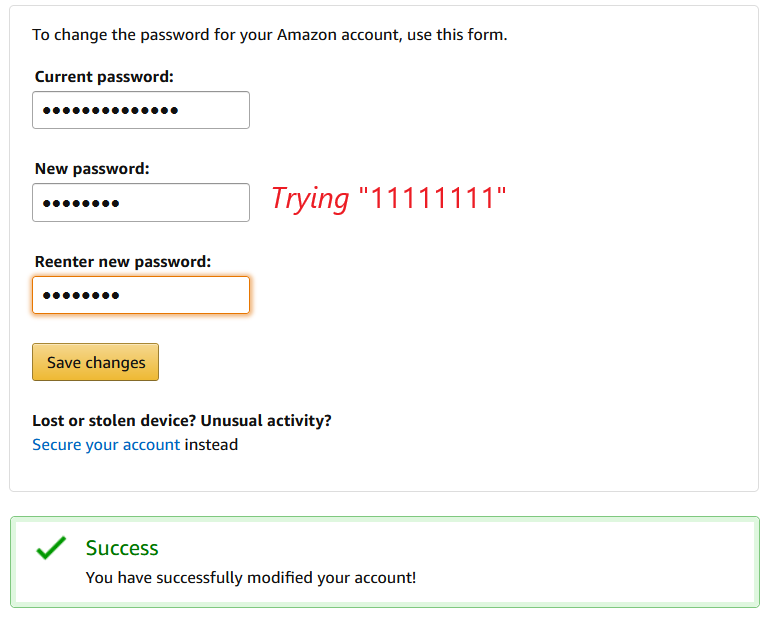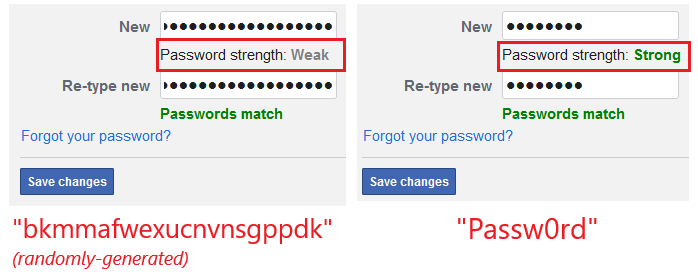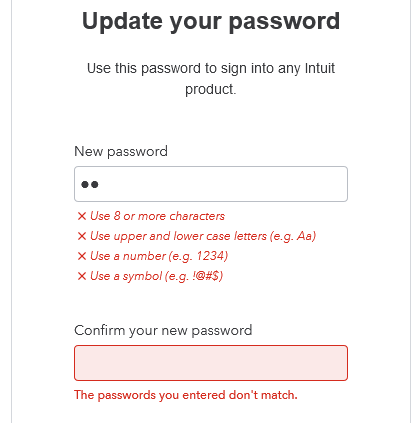Most top websites are not following best practices in their password policies
Freedom to Tinker 2022-06-22
By Kevin Lee, Sten Sjöberg, and Arvind Narayanan
Compromised passwords have consistently been the number one cause of data breaches by far, yet passwords remain the most common means of authentication on the web. To help, the information security research community has established best practices for helping users create stronger passwords. These include:
- Block weak passwords that have appeared in breaches or can be easily guessed.
- Use a strength meter to give users helpful real-time feedback.
- Don’t force users to include specific character-classes in their passwords.
While these recommendations are backed by rigorous research, no one has thoroughly investigated whether websites are heeding the advice.
In a new study, we empirically evaluated compliance with these best practices. We reverse-engineered the password policies at 120 of the top English-language websites, like Google, Facebook, and Amazon. We found only 15 of them were following best practices. The remaining 105 / 120 either leave users at risk for password compromise or frustrated from being unable to use a sufficiently strong password (or both). The following table summarizes our findings:
 We compare our key findings with best practices from prior research.
We compare our key findings with best practices from prior research.We found that more than half of the websites allowed the most common passwords, like “123456”, to be used. Attackers can guess these passwords with minimal effort, which opens the door to account hijacking.
 Amazon allowed us to change the password on our account to “11111111”, a common and easily-guessed password.
Amazon allowed us to change the password on our account to “11111111”, a common and easily-guessed password.Few websites had adopted strength meters, and of those, we found websites misusing meters to encourage complex passwords over strong, hard-to-guess passwords (e.g., preferring the predictable “Password123” over “bdmt7gg82nkc”—which we had randomly generated on our password manager). This not only defeats the purpose of password strength meters, but can lead to more user frustration.
 Facebook using its password strength meter as a nudge towards incorporating specific character types in passwords.
Facebook using its password strength meter as a nudge towards incorporating specific character types in passwords.Finally, we found almost half of the websites requiring users to include specific character-classes in their password, despite decades of research against it and outcry from users themselves.
 Intuit requires passwords include uppercase characters, lowercase characters, numbers, and symbols.
Intuit requires passwords include uppercase characters, lowercase characters, numbers, and symbols.Our study reveals a huge gap between research and practice when it comes to password policies. Passwords have been heavily researched, yet few websites have implemented password policies that reflect the lessons learned. At the same time, research has not paid attention to practice. In our paper, we discuss ways for both sides to come together to address this disconnect. One idea for future research: directly engage with system administrators, in order to understand their mindset on password security. Perhaps password policy is meant to be security theater—giving users a sense of safety without actually improving security. Or maybe websites have shifted their attention to adopting other authentication technologies, like SMS-based multi-factor authentication (which also suffers from severe weaknesses, as we discovered in previous research on SIM swaps and number recycling). Perhaps websites have to deal with security audits from firms like Deloitte recommending outdated practices. Or maybe websites face other practical constraints that the information security community doesn’t know about.
Our peer-reviewed paper is located at passwordpolicies.cs.princeton.edu.